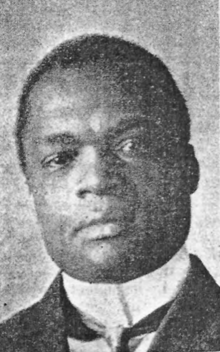IllmaticDelta
Veteran
this is some chatter from another thread
@Henry Broadnax
.
.
@generic-username
.
@Henry Broadnax
.
@K.O.N.Y
.
.
.
@generic-username
.
.
@IllmaticDelta
.
@Carolina
.
@ATownD19
.
@IllmaticDelta
.
@ATownD19
.
@K.O.N.Y
.
.
.
.
Are some people out here really so clueless that they need to ask a question like that? In this thread, I'll show you that:
In this thread, I'll show you that:
1. Aframs are indeed, the founders of modern, Pan-Africanism. This is also tied to concepts such as Black identity, Black Consciousness, Afrocentricity-Afrocentrism and Black Nationalism
2. Historically speaking, Aframs have been the most pan-africanist of any "black" people,
3. Yes, aframs put in the most work for the pan-africanist agenda
.
.
.
.
so, what is pan-africanism? In it's most basic sense:
@Henry Broadnax
.I'll tell you what pan africanism is:
Black Americans doing all the work for the diaspora, and not one country from the diaspora doing
anything.
Or
Black America trying to establish a coalition with an un-unified diaspora.
Black people in America need to take back the word "pan-african" cause it doesn't exist outside
of this country, and I ain't talking about a small hand full of people that communicate with
each other.
Pan africanism should be called Black Americanism. We give so much to every race, and no
reciprocation.
.
.
@generic-username
.The fact that you think Black Americans started or own Pan-Africanism is hilarious.
.
@Henry Broadnax
@generic-usernameWho put in the most work, TO THIS DAY?
Ill wait
.Probably Caribbeans. By the way what do you consider "most work" towards Pan Africanism.
Most Black Americans aren't Pan Africanist in any way.
.
@K.O.N.Y
.lol at "probably" caribbeans.
Dont even have a definitive hill to die on. Just talking just to talk.
The answer is Aframs
We carry the "idea" of blackness on our backs
.
.
.
@generic-username
.What is the "most work" Black Americans put in towards the Pan African movement?
.
.
@IllmaticDelta
.Dude, the examples are endless for what Aframs did for the pan-africanist, agenda
.
@Carolina
.You either dont know shyt about Pan Africanism or your feelings about AAs are making you
say dumb shyt.
Black Nationalism and Modern Pan Africanism were both pioneered by AAs. AAs were literally
largest ethnic group at the first (not really the first) Pan Africanism conference in London.
.
@ATownD19
.That's an oxymoron. I don't mean this as an insult, but it seems like a lot of you who
bash pan africanism 1. dont know what it is 2. aren't critical thinkers and don't seek readily
available information.
.
@IllmaticDelta
.aframs historically never bashed pan-africanism, since they invented it. The ones who
bash it today do because they see/saw how some foreignersgot down and decided, fuk it
.
@ATownD19
@IllmaticDeltaAre you saying african americans invented pan-africanism?
.aframs w/o question put the most work in for/on that pan-africanism tip.
.
@K.O.N.Y
.The very reason why MARCUS GARVEY came to the united states
.
.
.
.
Are some people out here really so clueless that they need to ask a question like that?
 In this thread, I'll show you that:
In this thread, I'll show you that:1. Aframs are indeed, the founders of modern, Pan-Africanism. This is also tied to concepts such as Black identity, Black Consciousness, Afrocentricity-Afrocentrism and Black Nationalism
2. Historically speaking, Aframs have been the most pan-africanist of any "black" people,
3. Yes, aframs put in the most work for the pan-africanist agenda
.
.
.
.
so, what is pan-africanism? In it's most basic sense:
Pan-Africanism is a worldwide movement that aims to encourage and strengthen bonds of solidarity between all indigenous and diasporan ethnic groups of African descent. Based on a common goal going back to the Atlantic slave trade, the movement extends beyond continental Africans with a substantial support base among the African diaspora in the Caribbean, Latin America, the United States and Canada.[1][2] It is based on the belief that unity is vital to economic, social, and political progress and aims to "unify and uplift" people of African descent.[3] The ideology asserts that the fate of all African people and countries[clarification needed] are intertwined. At its core Pan-Africanism is a belief that “African people, both on the continent and in the diaspora, share not merely a common history, but a common destiny".[4] Pan-Africanist intellectual, cultural, and political movements tend to view all Africans and descendants of Africans as belonging to a single "race" and sharing cultural unity. Pan-Africanism posits a sense of a shared historical fate for Africans in the Americas, West Indies, and, on the continent itself, has centered on the Atlantic trade in slaves, African slavery, and European imperialism.[5]














































 , influenced their black consciousness
, influenced their black consciousness and at the same time had white south africans mad as fuk when they realized they (black south africans) weren't just getting Bookerized by also getting Mcneal's brand of "blackism"
and at the same time had white south africans mad as fuk when they realized they (black south africans) weren't just getting Bookerized by also getting Mcneal's brand of "blackism"






